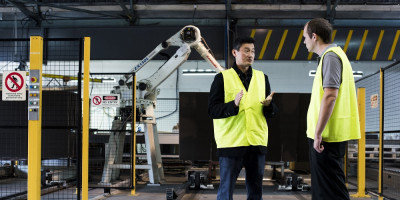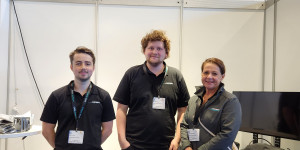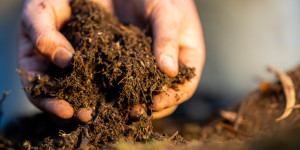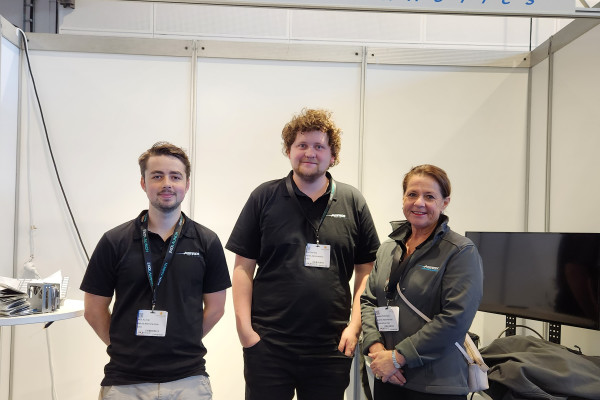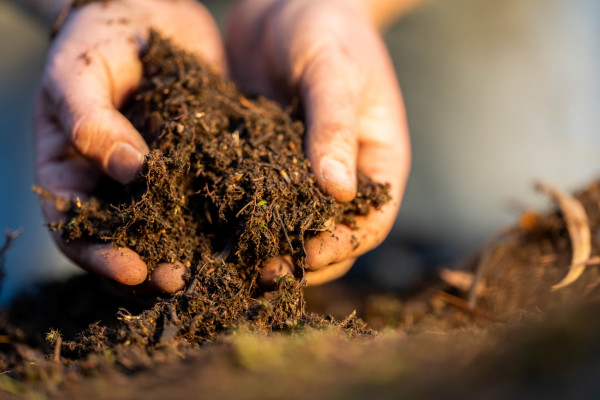BioBrew: Pivoting their probiotics from animals to humans. With BioBrew’s expertise in animal probiotics and Callaghan Innovation’s technical know-how, BioBrew was able to enter a new market with a human probiotic.
At a glance
- Previously focussed on animal probiotics, a meeting with Callaghan Innovation at Fieldays® opened the way for BioBrew to move into human health supplements.
- Callaghan Innovation’s Research and Development Solutions team supported BioBrew, guiding them through the process, offering access to experienced scientists and sophisticated laboratory equipment.
- As a result of the work, BioBrew has been able to produce a human probiotic. From here, the business is looking to undertake randomised controlled trials that would allow it to make specific therapeutic claims.
We barely understood the food grade regulations. To have someone with Paul’s [Callaghan Innovation Team Leader] expertise guiding us through it at such a high standard is very reassuring.
Andre Prassinos - Co-founder, BioBrew
From horses to humans
Little did Andre Prassinos and Don Pearson know that Fieldays® in 2009 would change the course of their business, BioBrew.
An animal probiotics company, BioBrew’s focus had been on developing fresh microbial supplements for mature and young ruminants, horses and household pets, as well as a bio-stimulant for plant health. However, the business had always aspired to enter the human health market.
So, when a Callaghan Innovation Regional Business Partner spotted the company at the agricultural event, that aspiration turned into a reality
A collaborative effort with Callaghan Innovation
After putting BioBrew in touch with the Research and Development Solutions Biotechnologies team at Callaghan Innovation, Bioprocessing & Fermentation Team Leader Paul Rose and Fermentation Scientist Rashad Syed worked with BioBrew to transfer its microbial know-how to a new probiotic product for people. The
The Biotechnologies team were able to add a layer of technical know-how to BioBrew’s existing knowledge and processing skills, reducing production time and increasing yields, Paul says.
“We barely understood the food grade regulations,” Andre Prassinos says. “To have someone with Paul’s expertise guiding us through it at such a high standard is very reassuring.”
Callaghan Innovation could also offer BioBrew the right cost model, with access to experienced scientists with sophisticated laboratory equipment on a contract basis.
In addition, through Callaghan Innovation, BioBrew was introduced to the New Zealand Food Innovation Network and their hub, The Foodbowl. This allowed the first commercial runs of the new dietary supplement.
Overall, Rose says it was a collaboration. “We’ve learned from each other. BioBrew inspired us and gave more purpose to our plans to introduce a fermentation process into our food grade facility, and we hope to use that as a platform for future opportunities.”
Taking on a new product category
BioBrew’s reputation in animal nutrition has grown steadily, and now they have a human probiotic to add to their product mix, LiveBrew.
As it has with other new products, BioBrew will begin with a direct sales model, building up enthusiasm for the human probiotic by giving away samples and selling online before it looks to interest retail outlets.
Although marketed as a health supplement that supports overall wellness, in due course BioBrew intends to work with clinicians on randomised controlled trials that would allow it to make specific therapeutic claims, Prassinos says. This is especially given the evidence is emerging that probiotics can help with a range of chronic conditions, he says.
“LiveBrew, our human product, really represents something of a new product category. We think that we’re headed towards a very important change for people suffering from a whole range of hard-to-treat problems.”







